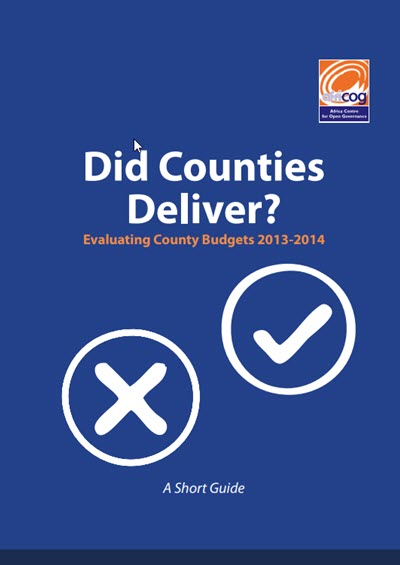The Constitution of 2010 provides for a devolved system of governance in which Kenya now has two distinct but interdependent levels of government – the national and county governments – which should cooperate and consult in the conduct of their mutual relations. Kenya is now divided into 47 counties. This is known as a devolved form of government, which is different from the former structure where everything was run by a central government.
One of the objects of this system of governance is to promote social and economic development and the provision of easily accessible services throughout the country. To realise this object, the Constitution provides that county governments shall have reliable sources of revenue to enable them to govern and deliver services effectively.
While the Constitution provided the principles of devolution, a number of Acts of Parliament were passed mbefore the 2013 elections, to allow for devolution to legally take place. These created the regulations and procedures through which the counties would govern themselves, and relate to national government, including how they would use the funds that have been allocated to them by Parliament and through the national government.
To assess whether the newly created counties used the funds as provided for by the Constitution and relevant laws during their first year of operation, AfriCOG reviewed the performance of county governments during their first six months of existence to evaluate the way they have managed public finances on behalf of citizens. This is a summarised version of that review.
